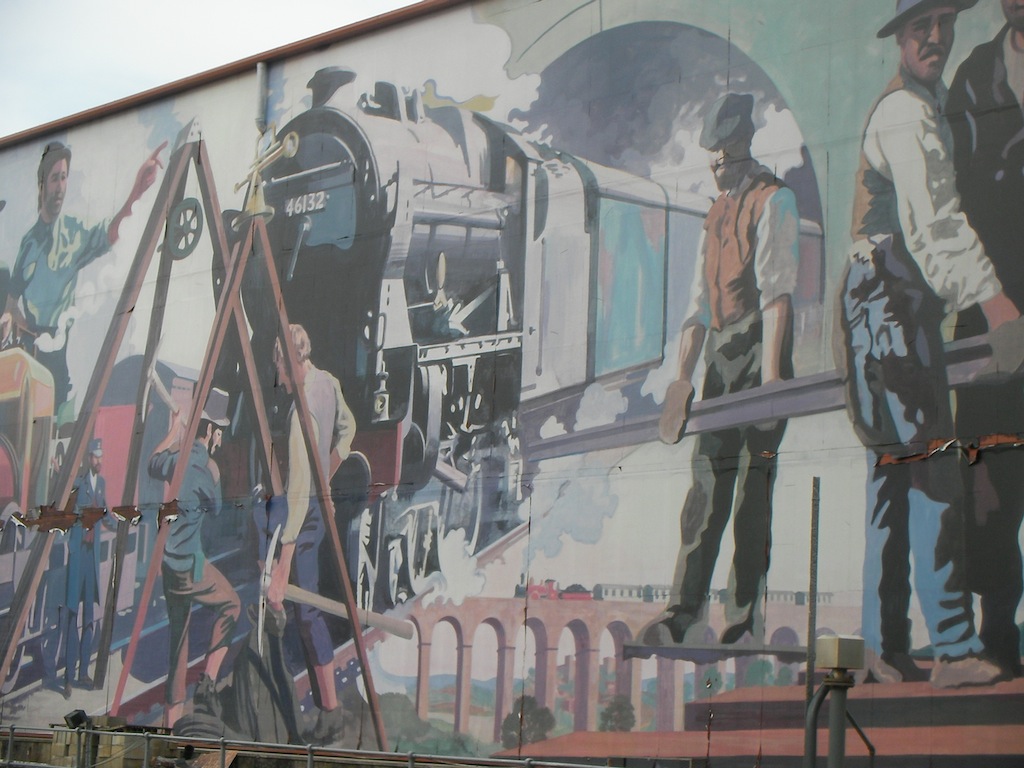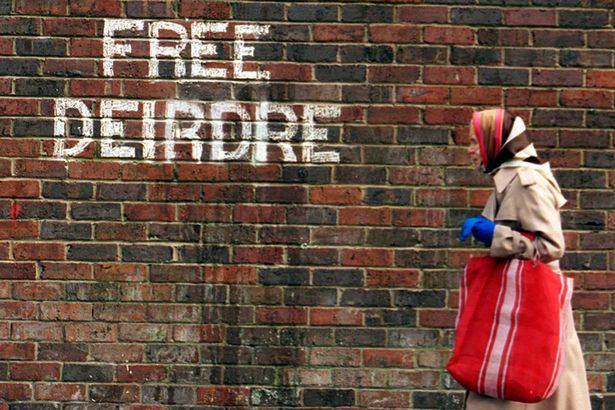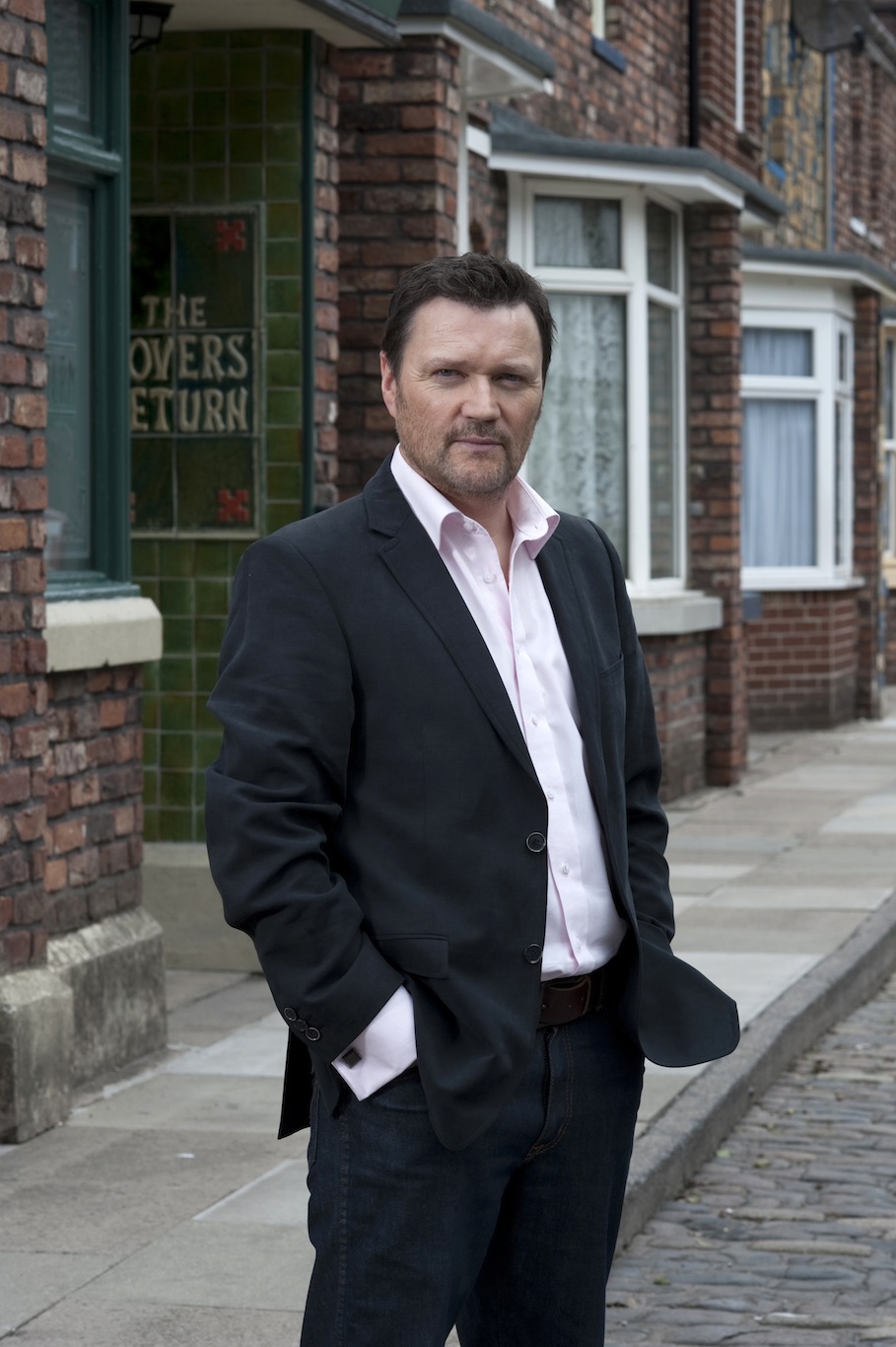
* Have you signed up for my new monthly newsletter? Subscribe at the home page.
The TV flickers into life.
I settle down to watch a compilation of clips of Coronation Street through the decades, starting with a black-and-white sequence of Florrie Lindley’s corner shop from the first-ever episode.
To my left a display case has a 40th anniversary Monopoly set and signed scripts from the show. Sadly, Hilda Ogden’s curlers have been returned to the Granada archive.
I’m at the Museum of Science & Industry (MOSI; pictured above), where the Connecting Manchester Gallery tells the story of communication from the evolution of a 1930s Baird Televisor to the early days of Granada Television as a maverick new kid on the block in 1956.
“The gallery is a great place for people to reminisce about watching Coronation Street during their childhood,” says Curator for Community History, Meg McHugh.
“Coronation Street was a ground-breaking programme when first commissioned as it actually reflected everyday life.”
Sure enough, the compilation of classic footage brings memories flooding back.
I’m too young for the 1961 confrontation between Elsie Tanner and Ena Sharples, the latter resplendent in her spider-web hairnet, and I was in short trousers for an episode celebrating the 1977 Silver Jubilee with Annie Walker, Bet Lynch and Alf Roberts.
But I do remember Hilda Ogden’s leaving party from 1987 with Vera Duckworth and Mavis Riley in attendance. It remains the show’s most-watched episode and I was one of the 27m viewers that night.
Birthday party
Coronation celebrates its 50th birthday on December 9.
ITV will mark the landmark with the most expensive shoot in soap history, a dramatic denouement to a storyline involving a tram crash, which will claim the lives of several key cast members.
I’ve come to Manchester to explore the cult of Corrie. I want to see how the story of Britain’s favourite soap opera reflects Manchester’s urban renaissance since those gritty, monochrome days of industrial decline in the early Sixties when three TV producers first cooked up the idea for a new TV series – then named Florizel Street.
From my room at the city’s ABode hotel, which blends the original features of the erstwhile cotton warehouse with funky, modernist furniture, I can see how the cityscape has evolved from industrial powerhouse to cultural capital of the north.
Following the 1996 IRA bombing of the city, the subsequent regeneration helped Manchester to secure the 2002 Commonwealth Games. The city was reborn.
Today the Beetham Tower, Europe’s tallest residential building, is the new symbol of Manchester, MediaCityUK at Salford Quays will generate a life of its own when the BBC moves into new premises in May next year and the Manchester International Festival returns next summer, attracting a global audience to its high-profile cultural events.
Walking tour
For devotees making a Coronation Street pilgrimage, the Castlefield area of the city, birthplace of Manchester in Roman times, and an area whose canals and railways were crucial to the Industrial Revolution from the late 18th century, is the spiritual home.
The area features heavily on the itinerary of walking tours arranged by Ed Glinert of New Manchester Walks. Ed leads guided walks around key locations, often accompanied by excited groups of Street fans from Canada and New Zealand, where the show is equally popular.
“Coronation Street doesn’t really reflect how much Manchester has changed. The show still feels vaguely northern but Weatherfield (the make-believe suburb where it is set) is a rather cosseted world,” says Eds.
“It’s still compulsive viewing but I yearn for the great characters.”
We meet at the Midland Hotel, where Messrs Rolls and Royce first came together to talk torque in 1904.
For fans of the Street, the stately old hotel is best known as the place where Mike Baldwin arranged two of his weddings, and where Stanley and Hilda Ogden went for their Silver Wedding dinner.
In real life, the actress Jean Alexander (who played Hilda Ogden) would eat fish and chips every Friday night in its restaurant, The French.
At each stop, Ed regales us with some with some juicy nugget of Corrie-inspired trivia, relating the development of the show to the urban regeneration of Manchester and revealing showbiz secrets from what he describes as the “golden age of Coronation Street” – that’s 1975 to ’85.
For example, when the actress who played Elsie Tanner (Pat Phoenix) was buried at the Catholic Church of The Holy Name of Jesus on Oxford Road in the mid Eighties, a fledgling young Labour MP, one Anthony Blair, was amongst the mourners.
But as we approach the current TV studios with its Art Deco-style Granada sign, it becomes quickly apparent that Granada Studios operates under a security regime more rigorous than Berlin’s Checkpoint Charlie at he height of the Cold War.
The set is completely blocked off to the public. The only way to currently steal a glimpse of storylines being filmed on set is to book out room 29 at the nearby Great John Street Hotel, which overlooks the set.
The former Granada Studio Tour has long since stopped, but there is speculation that Granada may relocate to new premises at MediaCityUK and reinstate on-set tours. For now, Ed’s walking tours are the only way for Corrie fans to get close to their favourite characters.
Swift half
We finish just off Deansgate at The Old Grapes, the pub co-owned by Liz Dawn (the actress who played Vera Duckworth). Over pints of local ales, we peruse the memorabilia from framed magazine covers to pictures of her and on-screen husband, Jack (Bill Tarmey), with various visiting dignitaries.
Back at the Connecting Manchester Gallery, I’m watching an interview with William Roach, the actor who plays Ken Barlow, and the only original cast member still in the show after 50 years of kitchen-sink dramas.
In 1961 he attracted 83 complaints for uttering the first expletive on the Street – “bloody”.
He says, as more fans join me for a trip down the memory lane of Coronation Street through the ages:
“Acting isn’t pretending. It’s believing,”
“For me, Coronation Street,” he adds, “is acting in its purest form.”
* This story was first published in the Daily Express in 2008. Liked this? Try A city guide to industrial-heritage Manchester.
Post your comments below.


